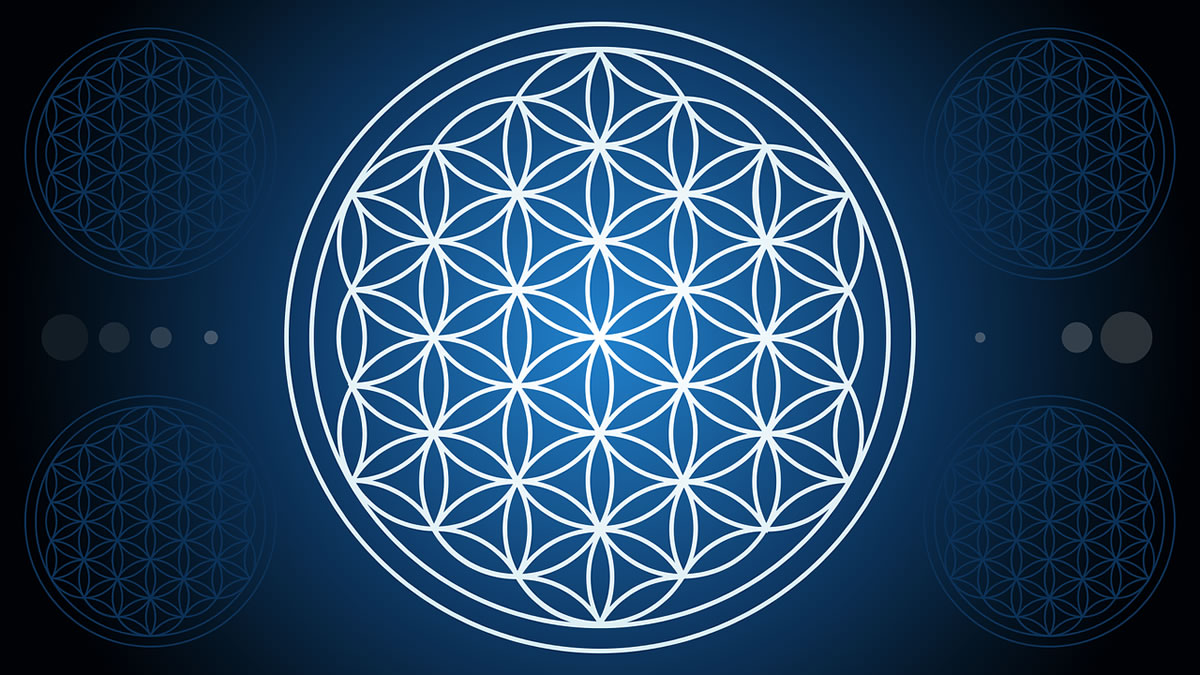In a world filled with myriad spiritual beliefs and practices, Gnosticism stands out as a path less traveled, offering seekers a profound and mystical journey into enlightenment. Rooted in ancient traditions yet enduring through the ages, Gnosticism is a captivating exploration of hidden knowledge, esoteric wisdom, and the quest for a deeper understanding of existence.
What is Gnosticism?
 At its core, Gnosticism is a spiritual and philosophical movement that dates back to the early centuries of the Common Era.
At its core, Gnosticism is a spiritual and philosophical movement that dates back to the early centuries of the Common Era.
The term “Gnosticism” itself is derived from the Greek word “gnosis,” meaning knowledge.
Gnosticism emphasizes acquiring spiritual knowledge or gnosis as the key to salvation and enlightenment.
In the realm of Gnosticism, knowledge is not about facts or information but rather an intimate, direct understanding of one’s true self, the divine, and the cosmos.
This knowledge is believed to liberate you from the constraints of material existence and lead you toward spiritual awakening.
Gnostic beliefs often contrast sharply with those of mainstream religions.
While conventional faiths tend to focus on external rituals, moral codes, and the worship of deities, Gnosticism delves deep into the individual’s inner journey, seeking to bridge the gap between the human soul and the divine.
Gnosticism vs. mainstream religions
To truly grasp the essence of Gnosticism, it’s crucial to recognize its distinctions from mainstream religions such as Christianity, Judaism, and Islam.
While these religions often emphasize faith, obedience, and communal worship, Gnosticism leans towards a more individualistic and introspective approach.
In Gnostic thought the material world is often viewed as a creation of a lower, flawed deity known as the Demiurge.
According to Gnostic beliefs, this entrapped human souls in a cycle of suffering, ignorance, and spiritual blindness.
The Gnostic aims to break free from these constraints and reconnect with the higher, transcendent realm.
The Gnostic journey involves:
- A profound inner transformation
- A reawakening of the spirit
- The pursuit of enlightenment through personal experience and insight
It’s a path that challenges conventional religious norms and encourages seekers to question, explore, and seek direct communion with the divine.
Core beliefs of Gnosticism
Gnosis – the path to enlightenment
 At the heart of Gnosticism lies the concept of gnosis, which is the central pillar of this mystical journey.
At the heart of Gnosticism lies the concept of gnosis, which is the central pillar of this mystical journey.
Gnosis is not a mere accumulation of intellectual knowledge but a profoundly transformative spiritual awakening experience.
It is a direct encounter with the divine, a revelation of your true nature, and an understanding of the hidden mysteries of existence.
In pursuing gnosis, Gnostics engage in practices that facilitate this profound spiritual insight.
These practices often include meditation, contemplation, and rituals designed to awaken the inner divinity within you.
Gnostics believe that through gnosis, you can transcend the limitations of the material world and attain a state of spiritual freedom and enlightenment.
Dualism in Gnostic thought
One of the distinctive features of Gnostic belief is its dualistic worldview.
Gnosticism believes there are two opposite worlds or dimensions: the material world, often seen as the domain of darkness and ignorance, and the spiritual world, associated with light and divine knowledge.
Within this dualistic framework, the Demiurge is considered the creator of the material world but lacks the knowledge and wisdom of the higher, transcendent God or the Pleroma.
Gnostics view the Demiurge as an imperfect and sometimes malevolent deity responsible for keeping humanity trapped in the illusion of material existence.
This dualism serves as a backdrop to the Gnostic’s quest for enlightenment.
By recognizing the stark contrast between the material and spiritual realms, you’ll be inspired to transcend the limitations of the material world and ascend toward the divine light.
Gnostic texts and scriptures
The Nag Hammadi Library
 To better understand the wisdom of Gnosticism, you can just look at the Nag Hammadi Library.
To better understand the wisdom of Gnosticism, you can just look at the Nag Hammadi Library.
Discovered in 1945 in Egypt, this collection of texts has been instrumental in shedding light on Gnostic beliefs and practices.
The Nag Hammadi Library contains a treasure trove of Gnostic scriptures, including the Gospel of Thomas, the Gospel of Philip, and the Gospel of Truth.
These texts offer insights into the Gnostic view of Jesus, the nature of reality, and the path to gnosis.
They glimpse the esoteric teachings often hidden from mainstream religious communities.
One must recognize these texts’ significance in understanding Gnosticism’s nuances.
They reveal a world of profound spiritual wisdom hidden beneath the surface of conventional religious narratives.
Gospel of Thomas – A Gnostic treasure
Among the texts in the Nag Hammadi Library, the Gospel of Thomas holds a special place.
This Gnostic gospel contains a collection of sayings attributed to Jesus, many of which differ significantly from the teachings found in the canonical gospels of the Christian tradition.
In the Gospel of Thomas, Jesus speaks of the importance of self-knowledge and inner transformation.
He invites his followers to seek the divine within themselves and to recognize their true nature as spiritual beings.
This emphasis on direct spiritual experience and self-realization aligns closely with core Gnostic principles.
The Gospel of Thomas is a testament to the Gnostic belief in the transformative power of gnosis and the notion that salvation is attainable through a personal, inner journey rather than external rituals or dogma.
Gnostic sects and movements
Early Gnostic sects
 Throughout history, Gnosticism has manifested in various sects and movements, each with unique interpretations of Gnostic teachings.
Throughout history, Gnosticism has manifested in various sects and movements, each with unique interpretations of Gnostic teachings.
Some prominent early Gnostic sects include the Valentinians, the Sethians, and the Marcionites.
These sects brought diversity to Gnostic thought, exploring different aspects of gnosis, cosmology, and the relationship between the material and spiritual realms.
While they shared the foundational belief in pursuing spiritual knowledge, each sect developed distinct rituals, symbols, and practices.
The existence of these diverse sects highlights the richness of Gnostic thought and its capacity to adapt and evolve while maintaining its core emphasis on inner enlightenment.
Modern Gnostic revival
In recent years, there has been a resurgence of interest in Gnosticism among modern spiritual seekers.
This revival has given rise to contemporary Gnostic organizations and movements inspired by ancient traditions.
These modern Gnostic groups aim to adapt Gnostic teachings to the challenges and opportunities of the present day.
They provide a platform if you’re seeking a deeper spiritual connection, often blending Gnostic principles with other mystical and esoteric traditions.
Moreover, Gnosticism has also left its mark on popular culture, referencing Gnostic themes appearing in literature, music, and film.
This cultural resonance speaks to the enduring fascination with the Gnostic journey and its relevance in a rapidly changing world.
Mystical experiences in Gnosticism
Role of rituals and symbols
 Rituals and symbols are significant in Gnostic practices as gateways to mystical experiences.
Rituals and symbols are significant in Gnostic practices as gateways to mystical experiences.
Gnostics use characters like the Ouroboros (the serpent eating its tail), the Aeons, and the Pleroma to convey profound spiritual truths.
Rituals are designed to facilitate direct encounters with the divine and trigger gnosis.
Through meditation, chanting, and sacraments, practitioners seek to transcend the limitations of the material world and commune with the spiritual realm.
The Gnostic journey is overflowing with moments of revelation, where you can experience a profound sense of oneness with the cosmos and a deep understanding of the interconnectedness of all things.
Encounters with divine Sophia
Another captivating aspect of Gnostic spirituality is the role of Sophia, the divine feminine figure.
Sophia represents wisdom and the nurturing, compassionate aspect of the divine.
Gnostics believe that by connecting with Sophia, they can access more profound levels of spiritual insight and compassion.
In Gnostic cosmology, Sophia’s story is tragedy and redemption.
Her descent into the material world symbolizes the fall of the soul into ignorance, but it also holds the promise of eventual return to the divine source.
By invoking Sophia in their spiritual practices, Gnostics seek to accelerate their journey back to the Pleroma, the ultimate realm of light and knowledge.
Gnosticism in the modern world
Influence on modern spirituality
 The allure of Gnosticism continues to captivate contemporary spiritual seekers.
The allure of Gnosticism continues to captivate contemporary spiritual seekers.
Its emphasis on personal experience, inner transformation, and direct communion with the divine resonates with those seeking more profound meaning and connection.
Modern Gnosticism has influenced various spiritual movements, and may inspire you to explore the depths of your inner self and seek gnosis.
It offers an alternative perspective on spirituality that challenges conventional religious dogma and encourages you to forge your unique path to enlightenment.
Challenges and controversies
While Gnosticism has devoted followers, it has also faced criticism and controversy.
Some argue that its emphasis on esoteric knowledge can lead to elitism and exclusion, while others challenge its dualistic worldview and critique its interpretation of traditional religious figures.
It is essential to acknowledge that Gnosticism, like any spiritual path, is not without its complexities and debates.
However, these challenges should be balanced with the profound and transformative experiences many Gnostics have reported on their journeys toward mystical enlightenment.
Conclusion
In the realm of spirituality, Gnosticism stands as a testament to the human quest for deeper meaning, insight, and enlightenment.
Its focus on gnosis as the path to mystical enlightenment sets it apart from conventional religious traditions, offering a unique and captivating journey into the mysteries of existence.
As a seeker of truth, you may be drawn to Gnosticism for its profound exploration of inner knowledge, its challenge to conventional norms, and its promise of a direct encounter with the divine.
In an ever-changing world, Gnosticism remains an epic journey into mystical enlightenment, inviting you to embark on a quest that leads not outward but inward — toward the illumination of the soul and the realization of your true nature as a being of light and wisdom.
Ultimately, Gnosticism teaches you that the true epic journey lies not in traversing distant lands but in unveiling the mysteries within yourself and the cosmos, ultimately leading you to a profound connection with the divine.
Invitation
As you explore the mystical journey of Gnosticism and its quest for deeper understanding, you’ll find a parallel in conscious channeling—an opportunity to connect with higher realms and unlock your spiritual potential.
Just as Gnostics seek to bridge the gap between the human soul and the divine, channeling allows you to tap into spiritual wisdom.
Download my FREE eBook, Introduction to Channeling, to begin your journey of spiritual growth.
Explore the depths of your spirituality and connect with the divine. Start your transformative journey today!……






